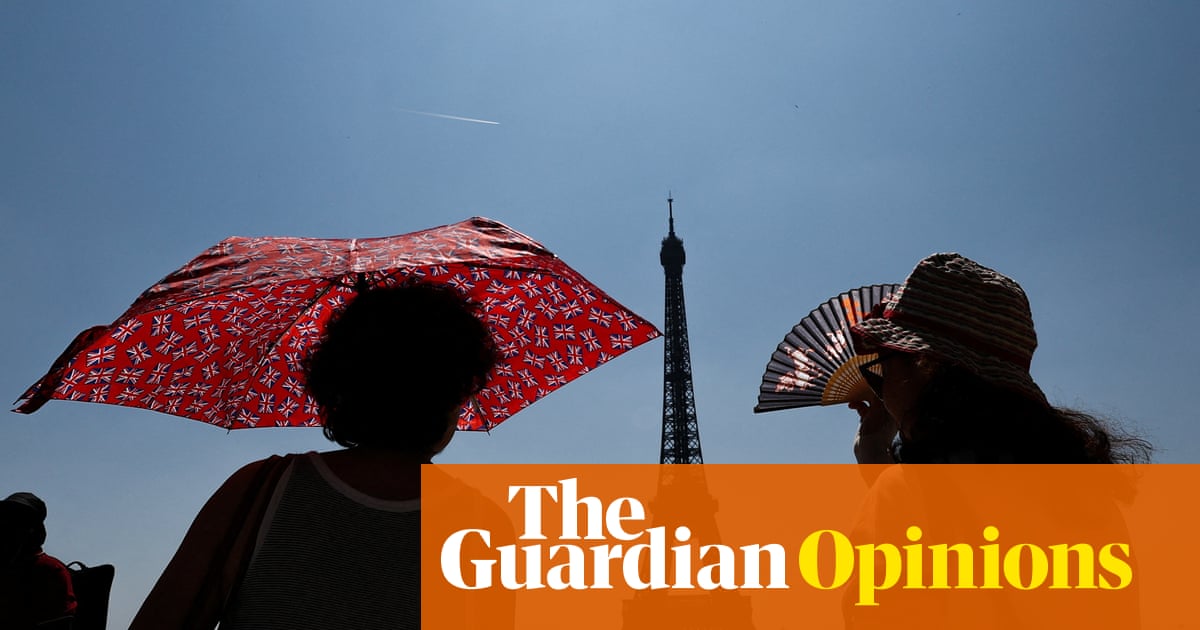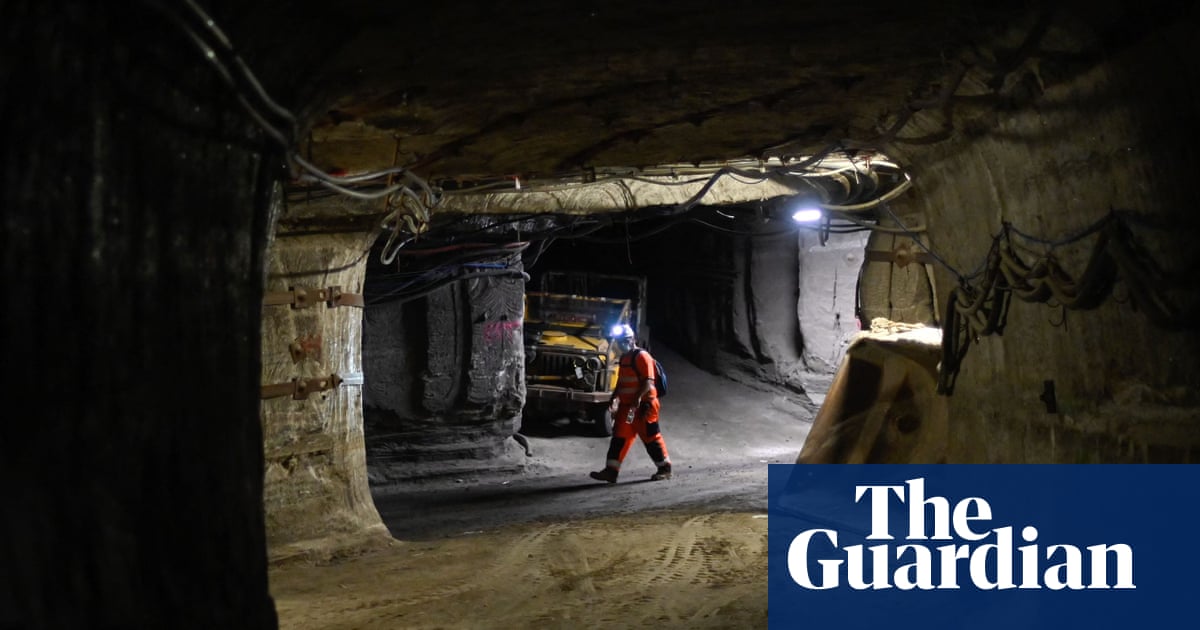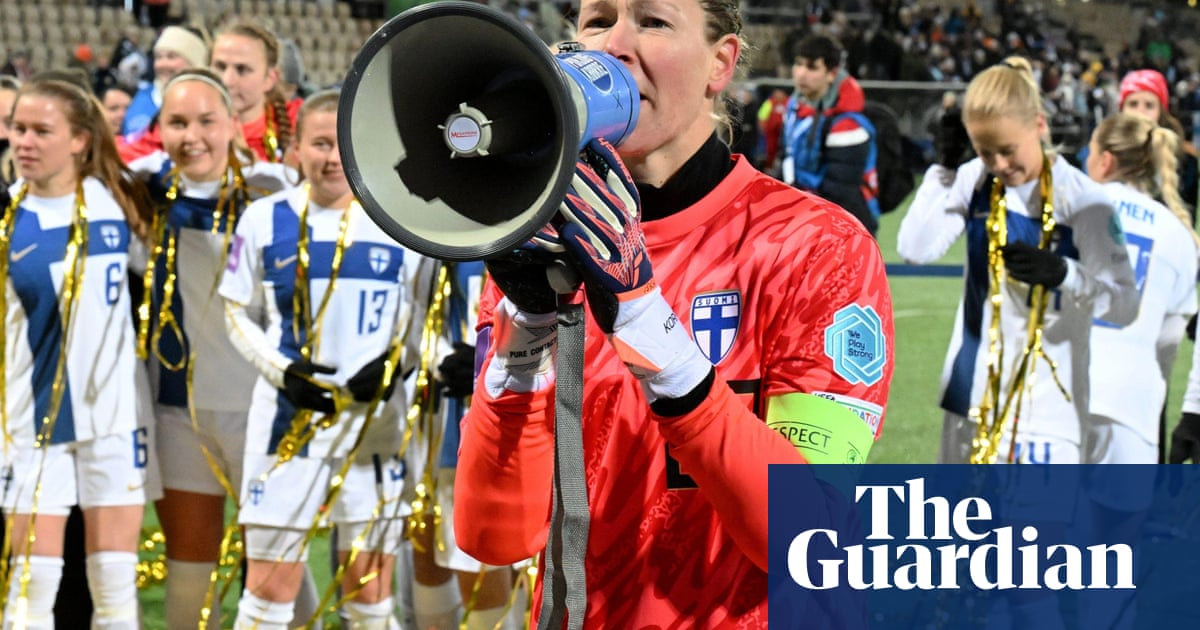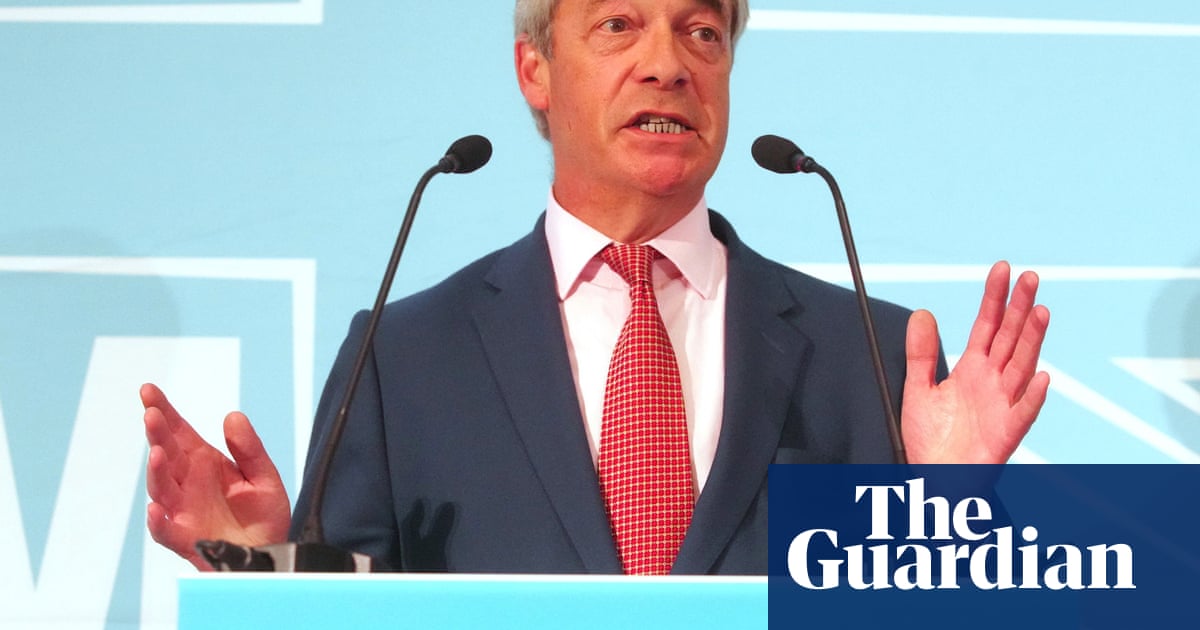UK inflation falls to 2.8%
Newsflash: UK inflation has fallen back to 2.8%, in a boost to Rachel Reeves a few hours before she delivers her spring statement.
The Office for National Statistics said annual inflation as measured by the consumer prices index cooled last month, dropping from 3% in January.
That slightly lowers the cost of living pressure on families, but also means prices are still rising faster than the Bank of England’s 2% target.
On a monthly basis, CPI rose by 0.4% in February 2025, compared with a rise of 0.6% in February 2024.
The largest downward contribution came from clothing, the ONS reports.
Key events Show key events only Please turn on JavaScript to use this feature
Chart: Contributions to change in the annual CPI inflation rate
Here’s a chart showing the various price changes that pulled UK inflation down to 2.8% last month.

Core inflation slows to 3.5%
Core inflation has also slowed in February, despite prices rising steadily in the services sector.
Core CPI (which excudes energy, food, alcohol and tobacco) rose by 3.5% in the 12 months to February 2025, down from 3.7% in the 12 months to January.
The CPI goods annual rate slowed from 1.0% to 0.8%, while the CPI services annual rate was unchanged at 5.0%.
Yael Selfin, chief economist at KPMG UK, says the UK’s central bankers will be cheered by the drop in core CPI:
“The Bank of England will be reassured by today’s fall in underlying inflation, with core inflation easing. We expect underlying inflationary pressures to fall further over the coming months. That will hopefully allow the MPC to look through the expected near-term increase in headline inflation and resume cutting interest rates in the upcoming May meeting.
“Goods inflation fell to 0.8% in February, however ongoing trade frictions could push prices higher. With the potential imposition of tariffs, the cost of imported goods could increase, creating additional cost pressures for both businesses and households.
“Headline inflation eased to 2.8%, driven by a fall in the price of clothing. We expect headline inflation to rise over the coming months, driven by higher energy prices as well as a further increase in food prices.”
ONS chief economist Grant Fitzner reports that alcoholic drinks prices have risen:
“Inflation eased in February. Clothing prices, particularly for women’s clothes, was the biggest driver for this month’s fall.
“This was only partially offset by small increases, for example, from alcoholic drinks.”
Today’s UK inflation report shows that prices of alcohol and tobacco rose by 5.7% in the year to February, up from 4.9% in January.
First annual fall in clothing prices since 2021

Cheaper clothing pulled the UK’s inflation rate down last month.
Overall prices for clothing and footwear fell by 0.6% in the 12 months to February 2025, compared with a rise of 1.8% in the 12 months to January
February’s figure was the first negative annual rate since October 2021, due to more discounting by retailers as they tried to shift stock.
The inflation report explains:
The easing in the annual rate was mainly the result of a large downward effect from garments for women, with small downward effects coming from a range of women’s clothing items.
There were additional small downward effects from children’s clothing, and other clothing and clothing accessories, such as hats and women’s scarves.
UK inflation falls to 2.8%
Newsflash: UK inflation has fallen back to 2.8%, in a boost to Rachel Reeves a few hours before she delivers her spring statement.
The Office for National Statistics said annual inflation as measured by the consumer prices index cooled last month, dropping from 3% in January.
That slightly lowers the cost of living pressure on families, but also means prices are still rising faster than the Bank of England’s 2% target.
On a monthly basis, CPI rose by 0.4% in February 2025, compared with a rise of 0.6% in February 2024.
The largest downward contribution came from clothing, the ONS reports.
The Prospect union are urging the government to make sure the new funds for defence are spent in the UK, rather than on overseas weapons makers.
Mike Clancy, General Secretary of Prospect, says:
“The need to invest in defence becomes more obvious by the day, and this new money is an important down payment on this national priority.
“New investment in the sector must go towards creating good, well-paid jobs in the UK’s world leading defence industry and not sending work abroad as has happened too often in the past.
“Government must also go further in investing in skilled staff in the MOD in areas like procurement, to guarantee we have the expertise at the heart of government to ensure that extra money is spent well in the national interest.”
You can get up to speed on the tricky economic picture facing the chancellor here:
Reeves expected to announce further welfare cuts in spring statement
Rachel Reeves’s spring statement plans have suffered a last-minute shock.
Britain’s fiscal watchdog, the Office for Budget Responsibility, has rejected the government’s estimate of savings from the changes announced last week, which will force the chancellor to make additional welfare cuts today to keep within her fiscal rules.
Final estimates from the OBR suggested the changes announced by Liz Kendall, the work and pensions secretary, which included tightening the criteria for the personal independence payment (Pip), would not save the £5bn needed to keep within Reeves’s self-imposed borrowing limits.
The chancellor is expected to announce an additional £500m in benefits cuts to make up part of the £1.6bn shortfall, first reported by the Times – with the rest of the gap filled by spending cuts elsewhere.
According to Sky News, Reeves is now expected to announce that universal credit (UC) incapacity benefits for new claimants, which were halved under the original plan, will also be frozen until 2030 rather than rising in line with inflation.
There will also be a small reduction in the basic rate of UC in 2029, with the new measures expected to raise £500m, they add.
Introduction: UK inflation report due ahead of spring statement
Good morning, and welcome to our rolling coverage of business, the financial markets and the world economy.
It’s a red letter day in the City of London, as investors await the latest UK inflation report, and then an update on the nation’s finances.
On inflation, due at 7am, economists expect a small slowdown in the rising cost of living. The Consumer Prices Index is forecast to have risen by 2.9% in the year to February, down slightly on January’s 3%.
That would still show prices rising faster than the Bank of England’s 2% target but would at least be a move in the right direction for strugging households.
However, any relief may be short-lived, with many bills set to rise in April. The BoE predicts inflation will hit 3.75% this autumn.
Economist Robert Wood and Elliott Jordan-Doak of Pantheon Macroeconomics predict:
“February should be the calm before the storm of annual price resets, as Government-set price hikes and tax rises drive up headline CPI inflation to 3.5% in April.
A drop in inflation would be welcome news for Chancellor Rachel Reeves, as she prepares to deliver her spring statement.
This was initially intended to be a low-key update, but Reeves is now expected to announce spending cuts for some Government departments, and cuts to sickness and disability benefits which will be very unpopular with Labour MPs.
Reeves is in a bind because government borrowing is running ahead of estimates, while growth has been disappointing.
The Office for Budget Responsibility is expected to lower its growth forecasts, and could halve its growth projection for 2025 from 2% to near 1%.
The rise in UK government borrowing costs since last October’s budget has also eaten into the chancellor’s limited headroom to keep within her debt limits.
Reeves is expected to promise “security and national renewal”, alongside familiar pledges to kickstart economic growth and protect working people. She’ll also announce a further £2.2bn funding increase for defence from April, to keep the country safe.
Reeves is expected to say she is proud of what has been delivered in the nine months since the general election:
“Restoring stability to our public finances; giving the Bank of England the foundation to cut interest rates three times since the General Election; rebuilding our public services with record investment in our NHS and bringing down waiting lists for 5 months in a row; and increasing the National Living Wage to give 3 million people a pay rise from next week.
The agenda
-
7am GMT UK inflation report for February
-
9.30am GMT: UK house prices and rents report
-
12.30pm GMT: Rachel Reeves delivers the spring statement
-
1pm GMT (approx): Office for Budget Responsibility publishes its latest economic anad fiscal outlook

 2 months ago
80
2 months ago
80

















































